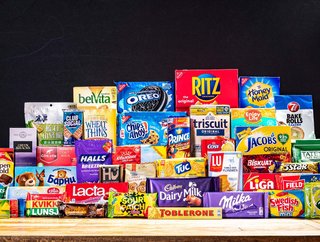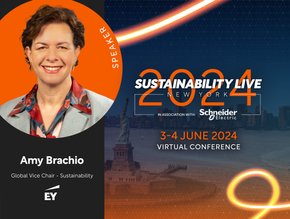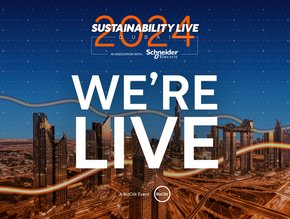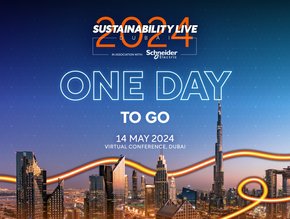Mondelēz moves towards net-zero emissions in supply chain

The owner of the world’s main choices for snacks, from chocolate to crisps and sweets, Mondelēz International pays close attention to its own impact on the world. The confectioner-snack maker is committed to the net-zero emissions target by 2050 and will do so with support from the Science-Based Targets initiative (SBTi).
Since joining the SBTi two years ago, Mondelēz has also signed on the dotted line, submitting a time-bound plan aligned with the framework and in likewise the Paris agreement.
"We are actioning business transformation and making strong progress, but the road to Net Zero requires global collaboration across industries, sectors and landscapes to unlock innovative and collaborative solutions allowing us all to go further, faster," says Christine Montenegro McGrath, Senior Vice President and Chief Global Impact and Sustainability Officer at Mondelēz International.
"We remain focused on leveraging proven models and available solutions, while at the same time using our scale and influence to help drive technical advancement, public-private collaboration and investment to incubate innovation."
Emissions reduction of some much-loved food products
The company owns brands like Cadbury’s. belVita, Daim, Grenade, Mikado, Oreo, and Toblerone. With such a wide variety of products in the market, decarbonising its supply chain takes on a unified approach.
To fully understand and reduce emissions from its products, the company will implement a number of initiatives to
Cocoa: Under the Cocoa Life programme, the company has trained approximately 220,000 farmers in Good Agricultural Practices, provided around 6.7 million trees, and surveyed approximately 246,000 farms within Cocoa Life communities (as of 2022). Additionally, as a founding member of the Cocoa and Forests Initiative (CFI) in Ghana, the company actively collaborates with the Asunafo Region's landscapes initiative to implement environmentally friendly cocoa production practices and agroforestry models.
Wheat: In Europe, Mondelēz has introduced a reinforced set of farming practices deeply rooted in regenerative agriculture as part of its Harmony Ambition 2030 initiative. This initiative involves partnering with farmers to diversify crop rotations and incorporating decision-making tools to optimise fertiliser usage. The company is also piloting farmer training programmes through the Harmony Academy platform, a smartphone application aimed at encouraging the adoption of regenerative agricultural practices and promoting soil health. Additionally, Mondelēz has launched the first-ever Harmony Tour, a specialised training programme conducted on-site.
Dairy: The company is collaborating with various dairy suppliers to implement greenhouse gas reduction initiatives at the farm level. They have already achieved reductions of approximately 6-10% in CO2 equivalent emissions compared to their baseline levels.
Operational emissions reduction challenges
Of course, operationally, emission reduction is key. Mondelēz set out its plans for further action across the company; emissions reduction efforts of its manufacturing footprint, transitioning to bioenergy where it can act as a substitute to fossil fuel derivatives, and renewable energy power purchase agreements (PPAs).
Enhance renewable energy adoption: Increase the usage of renewable electricity within company-owned manufacturing facilities through PPAs, installation of solar arrays, and sourcing renewable energy credits (RECs) from wind and solar power sources.
Improving manufacturing efficiency: Commenced investments in multiple European operations of the Company to expand advanced manufacturing facilities and incorporate innovative technologies like electric ovens, resulting in a reduction in natural gas usage.
Transition to cleaner energy: Implemented the substitution of cleaner energy alternatives in select Company operations.
Logistics is a key area for sustainable impact
In terms of logistics, Mondelēz will focus on a number of key initiatives, including new investment in mobility, exploration of different transportation methods, and reduction of emissions from warehousing.
Partnering with Indian Railways and leveraging coastal waterways will also provide new opportunities for more efficiency, more direct transportation, and better leveraging of electrified systems.
*************************************************
For more insights into Sustainability - check out the latest edition of Sustainability Magazine and be sure to follow us on LinkedIn & Twitter
Other magazines that may be of interest - EV Magazine | Energy Digital
*********************************************
Sustainability LIVE Net Zero will be hosted live from the QEII Centre, London on the 6th and 7th of March, and streamed globally via our virtual event platform Brella. Sustainability LIVE Net Zero will delve deeper into the strategies, innovations, and collaborative efforts propelling us toward a net-zero future. The conference and exhibition gives the opportunity to connect with like-minded peers and actively contribute to crafting a sustainable future.
Following Sustainability LIVE Net Zero, viewers can also sign up for Sustainability LIVE Dubai, Singapore and New York.
Sign up to the The Global Sustainability & ESG Awards 2024, coming to London on the 10th September 2024.
*********************************************
BizClik is a global provider of B2B digital media platforms that cover 'Executive Communities' for CEO's, CFO's, CMO's, Sustainability Leaders, Procurement & Supply Chain Leaders, Technology & AI Leaders, Cyber Leaders, FinTech & InsurTech Leaders as well as covering industries such as Manufacturing, Mining, Energy, EV, Construction, Healthcare + Food & Drink.
BizClik, based in London, Dubai & New York offers services such as Content Creation, Advertising & Sponsorship Solutions, Webinars & Events.






